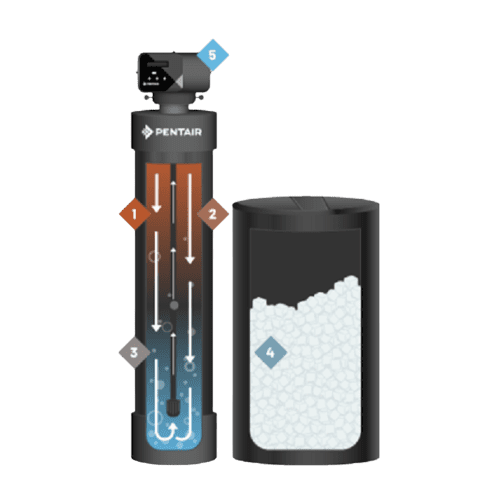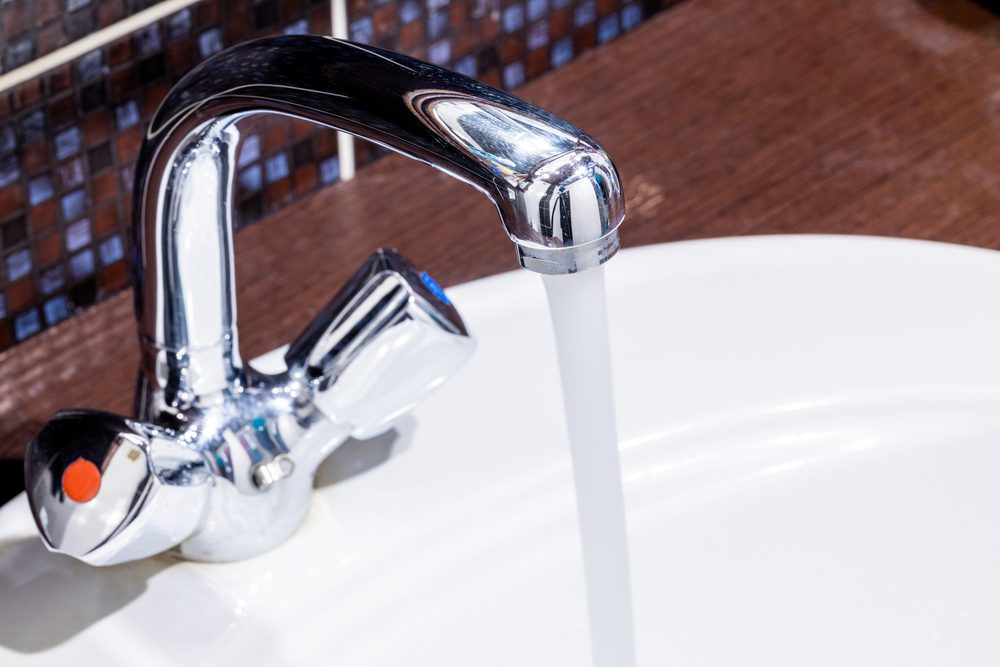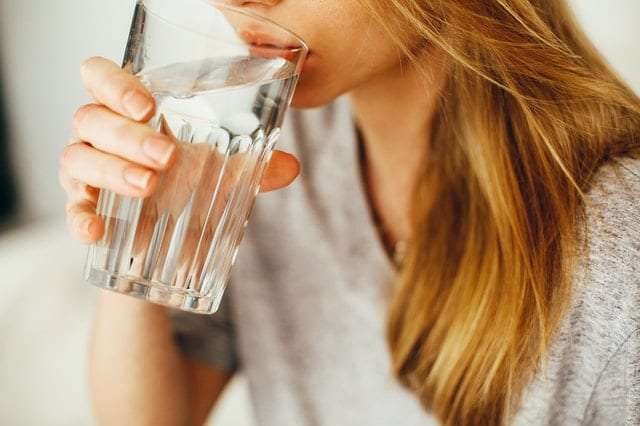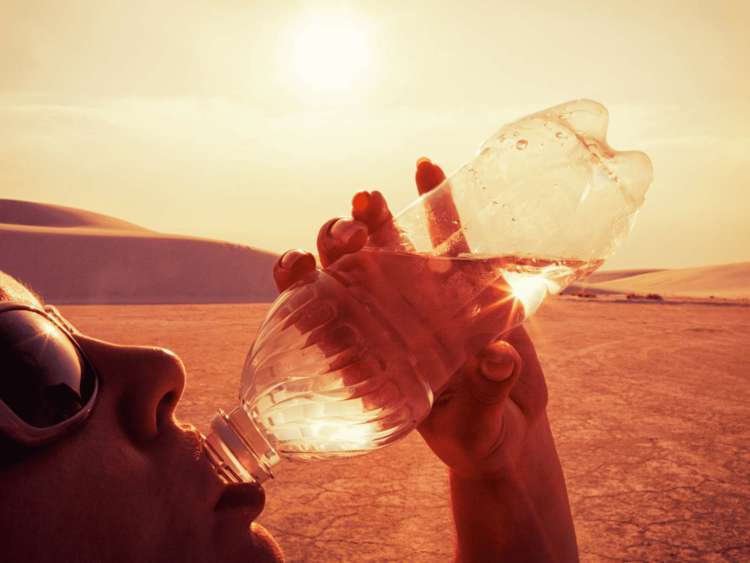The Reasons Why You Should Never Let Your Water Softener Run Out of Salt
Why won’t the soap lather properly? Why are there white spots on the shower door? And where in the world did a brown-orange stain in the kitchen sink come from? Ug Oh…!, We let the water softener run out of salt! Will it be ok?
Many folks would tell you that letting your water softener run out of salt is okay and that you should add salt and not worry. But letting your water softener run out of salt will cause long-term damage to your water fixtures and might even make your salt tank overflow!
What Happens If Your Water Softener Runs Out Of Salt?
Over time, the resin beads in the water softener become saturated in hard minerals and must be ‘regenerated.’
This is Where the second tank comes in.
Water From the brine tank flows to the resin container to trigger a reverse ion exchange. The beads give their mineral ions and catch a new sodium ion. The Mineralized water is then drained from the tank.
“New-aged water softeners run a ‘regeneration cycle’ automatically every few days… until the brine tank runs out of salt.
The water-softening resin will stay saturated if you forget to top off your water softener. This stops the ion exchange and allows hard water minerals to collect throughout your home’s water pipes, appliances, and fixtures.
When your water softener runs out of salt, it won’t be able to wash the hard iron and minerals from its softening resin. This means that the water is coming out and will contain hard minerals. Ultimately this means hard water and iron stains on all surfaces that contact your water.
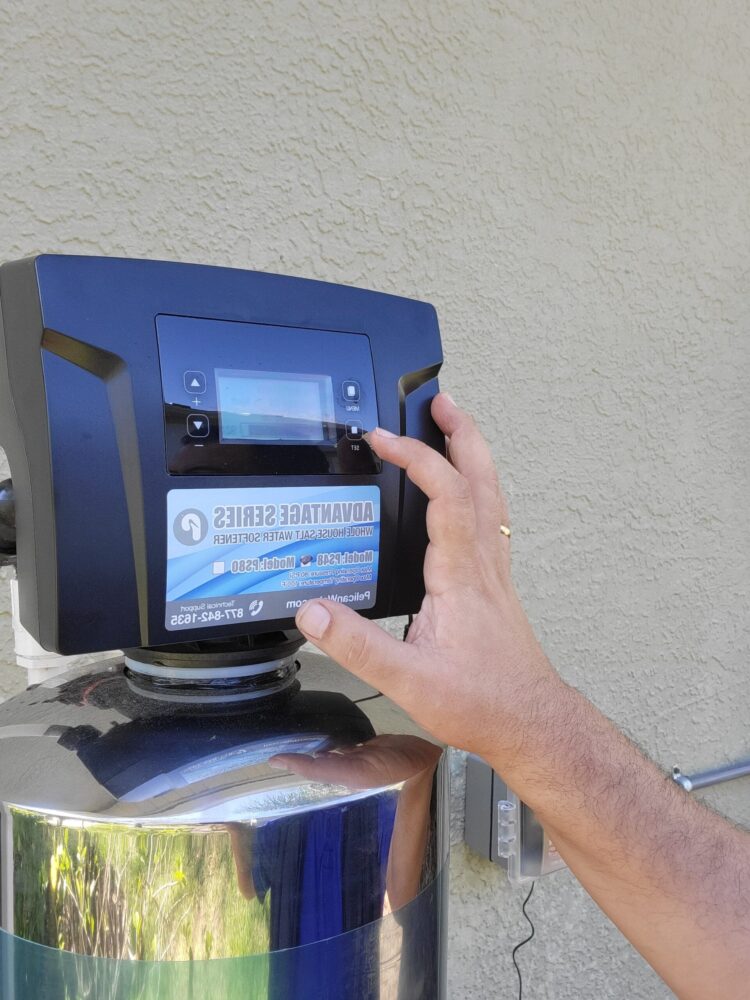
No salt in your water softener means No soft water
So your soap Will Not lather Up as well, as normally, no big deal right?
Well, there is a Great Deal more to it than that. Hard water is much more than an inconvenience, it is going to build up on your hot water heating system, making it less efficient, and in time, it will not operate at all.
Hard water can build up from the plumbing of Your home, in time limiting the water flow through the house.
We all forget to check our water softener salt from time to time. Always know when your water softener is outside of salt before it creates a disaster.
Iron and other hard minerals can get into your control valve.
With older water softeners, untreated water was used through the water softeners control valve and through the main chamber of the water softener where the main piston moves back and forth. This caused the piston to seize and seals to wear quicker.
In older water softeners, untreated water would be used through the water softeners control valve and through the main chamber where the main piston moves back and forth. This would causes the piston to seize and the seals to wear-out faster.
New water softener models typically have the water that goes through the control valve already go through the water softener. This makes the water soft and free of any iron.
Should you allow your system to run out of salt, you might be allowing hard iron and minerals access to the piston chamber and in the instance of a non-electric water softener, you might be allowing iron and hardness onto the fragile gears which control the systems regeneration procedure.
This is not as common as the other issues that can happen when you let your water softener run out of salt, but it might be the worst of all of them.
This is issue is more common in older non-electric water softeners than with newer electric systems. Non-electric water softeners rely on a single water shut-off valve to stop water filling your systems salt tank.
There is usually a tiny bit of dirt in the bag of salt that you empty in your water softener’s salt tank. This dirt will settle to the bottom of the salt tank as salt is dissolved for use.
Permanent etching on your glassware, shower door and more.
If your water softener runs out of salt, the resulting hard water that will be pouring out will leave hard water stains and streaks on everything that it comes in contact with (e.g. cups, bowls, silverware).
A white film will cover your glassware when it comes out of your dishwasher. You may be able to clean it off the first time, but will inevitably become a permanent etch in the glass in little to no time. Forks and knives will look like it never went through the dishwasher at all…
Your glass shower walls will start to look like they are frosted over from this white film, and they usually never get as clean as they once were, no matter how hard you scrub. And the replacement of a shower encloser can be quite expensive.
Your bathroom’s glass shower walls will begin to have a frosted over look to it and will never be as clean as they once were. Replacing a shower encloser can be very expensive!
Your salt tank could over flow! The brine float in your salt tank may not shut off the water filling your brine tank.
Although not as frequent as other problems that can occur from letting your water softener run out of salt, this issue could potentially be the most severe.
This issue is more common in older non-electric water softeners than with newer electric systems. Non-electric water softeners rely on a single water shut-off valve to stop water from filling your system’s salt tank.
When emptying a bag of salt into your water softener’s salt tank, it’s common to find a small amount of dirt mixed in. However, this dirt will eventually settle to the bottom of the tank as the salt dissolves for use.
Keeping an eye on your salt level is a wise decision and will help you avoid potential disasters.
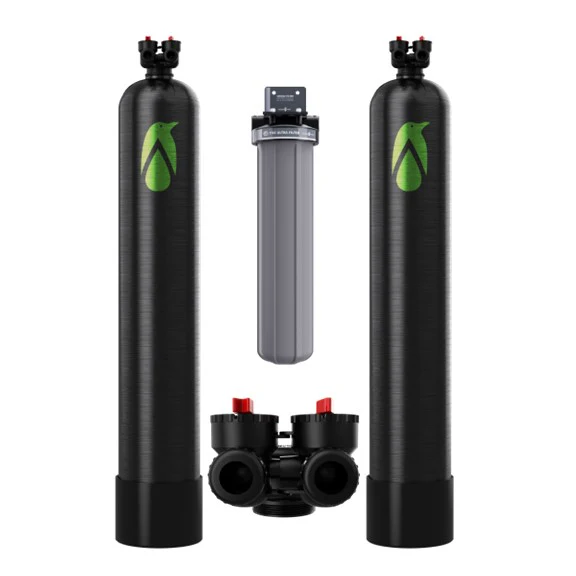
You wouldn’t let your car purposely run out of gas, would you? If you have, doing it once won’t end the world. But indeed, after multiple times doing so, your car will have major mechanical issues.
Get yourself and other family members into a routine of constantly checking the salt tank whenever they pass it by. I also suggest keeping a few bags of water softener salt in a room far from the water softener.
Get yourself and other household members into a routine of constantly checking the salt tank any time they see or pass by it. You are keeping a couple of bags of water softener salt in a space near the water softener. This will help you fill your salt tank when it’s getting low without carrying a heavy bag too far.
Need a water softener to upgrade? Smart Water Treatment Technology has the best water softener system for your home. Give us a call and talk to one of our specialists to find out more.
Water Softener Runs Out Of Salt? contact us

